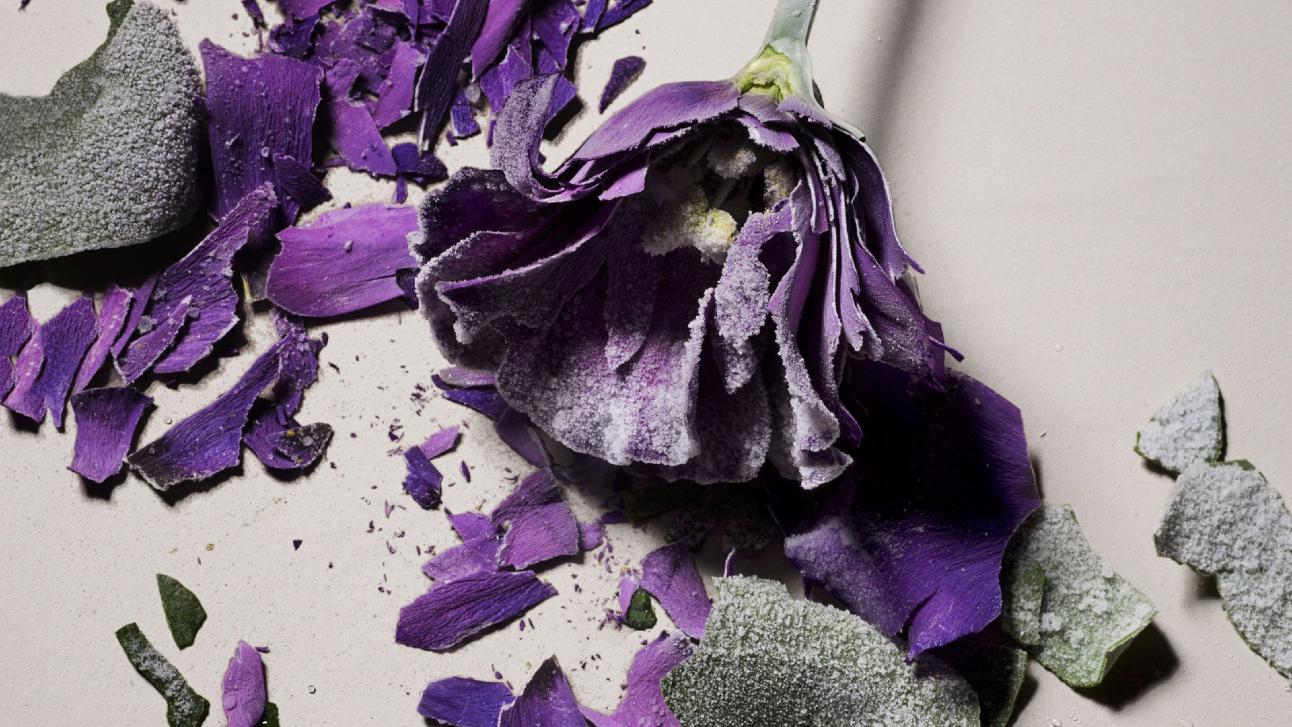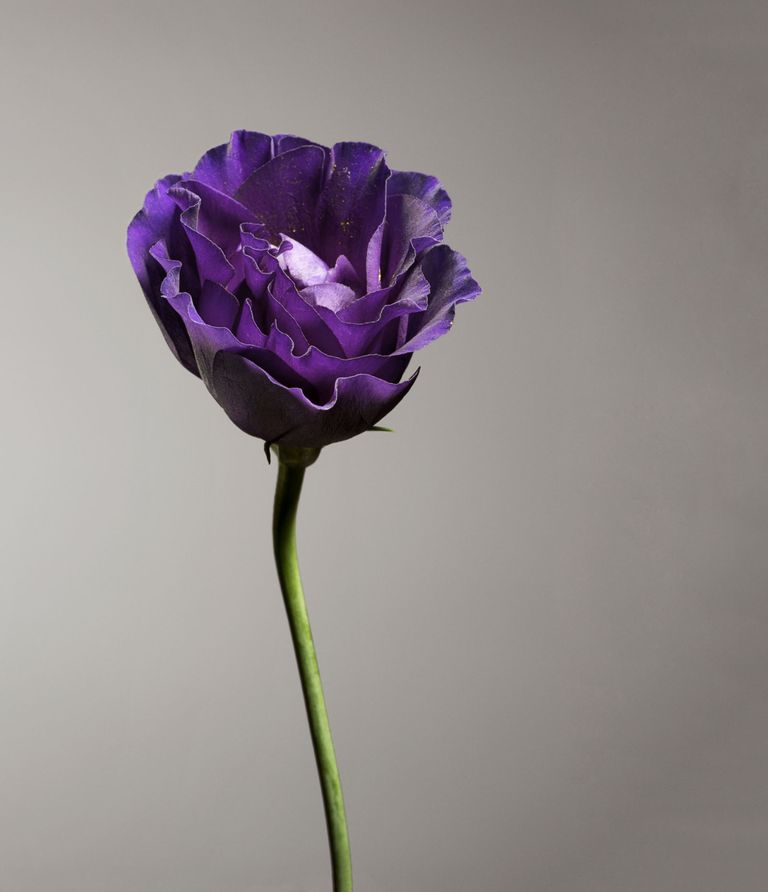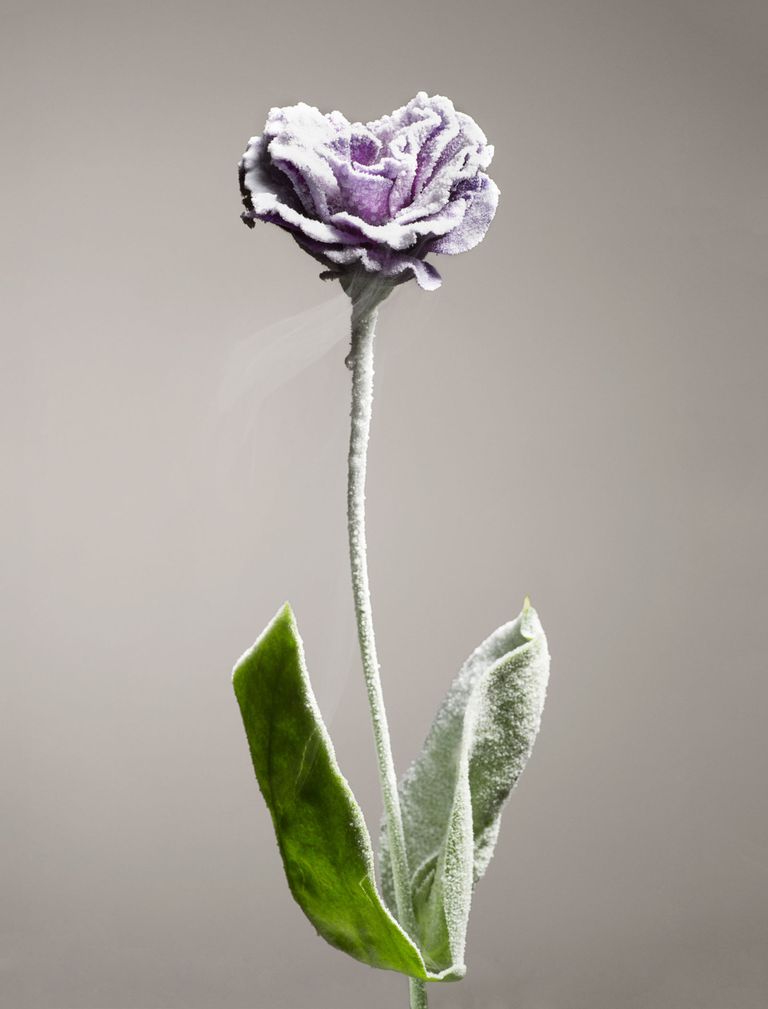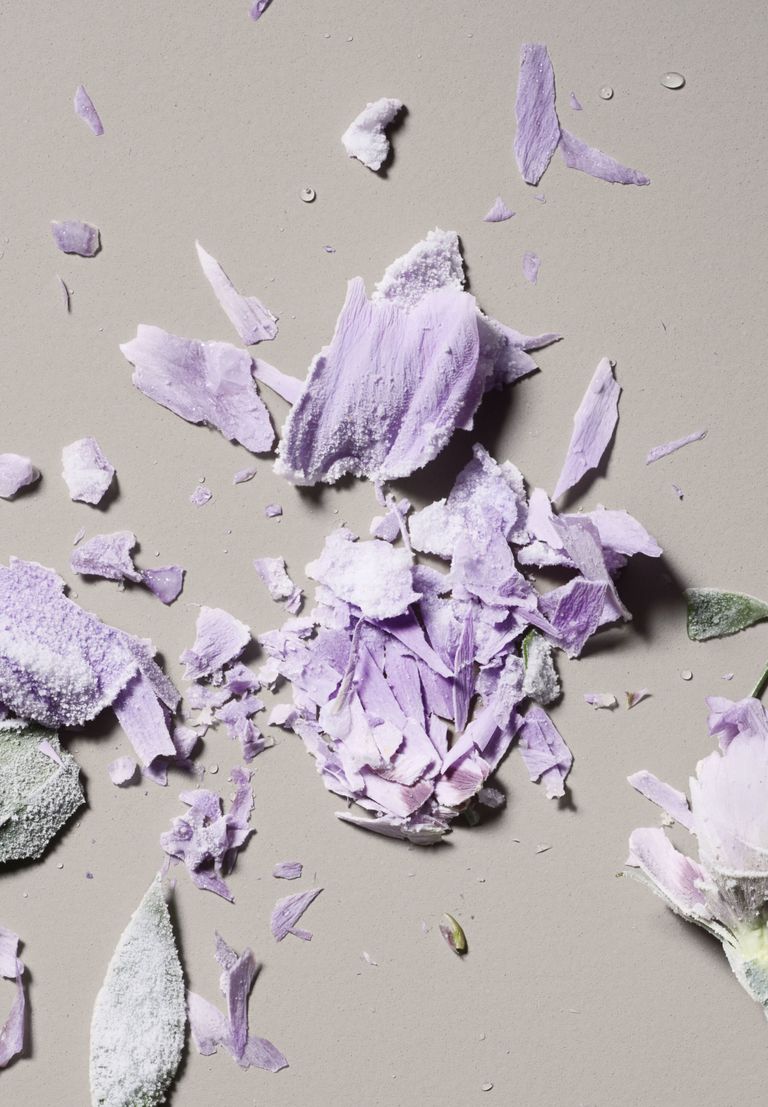Frozen in Time
With Botox, fillers, and lasers at the ready, is it now a woman's right — or duty — to look as young as she feels? Aleksandra Crapanzano weighs in on the antiaging dilemma.

Not long ago, I found myself at a table on Manhattan's Upper East Side, surrounded by the very group I'd had dinner with 10 years ago to the date. I can say this with certainty, as it was a birthday dinner and the friends were old friends — although, I immediately realized, no one looked exactly old enough to claim such a title or to have lived through the past decade. And while, at 41, I was the youngest female guest by a good 15 years, you might have thought I was the oldest. Madonna may sing of the erotic allure of a virgin, but no one — to date — sings of the beauty of the Botox virgin. And that, I realized, was the name writ deep in the furrows of my brow that birthday dinner. While the other guests had been retracing their footsteps, I had been simply getting older.
Perhaps it was the glass of champagne that mischievously turned my thoughts to Roald Dahl's Charlie and the Great Glass Elevator. In this spot-on satirical tale, Willy Wonka, the owner of the famous chocolate factory, offers Charlie's bedridden grandparents a pill called the Wonka-Vite. Each of these magic pills promises to make them 20 years younger. Faced with this elixir of life, three of the grandparents greedily start gobbling as many pills as they can, and before Charlie can stop them, two have morphed into wailing babies and one has become minus-2 and must be rescued from the hellish netherworld Minusland. Dahl, of course, is suggesting that the fountain of youth is as tempting as the tree of life and as certain to doom you. The author died in 1990, just a few years before Botox began its rapid ascent to become the most popular cosmetic procedure ever. Perhaps if Dahl were alive now, he'd write a version for grown-ups, set not in a chocolate factory, but in a plastic surgery clinic on a small, private island somewhere off the coast of Brazil.
Looking around the table, I wondered what surgery each guest would choose and how radical. Would removing 10 years be enough? Twenty? Thirty? Who would plunge off the slippery slope and fall into minusland? Who would refrain? And then, naturally, I began to wonder what I would do. It wasn't hard, as I, like most women I know, have a long list of improvements I'd be happy to make to my appearance, beginning with my no-longer-taut jawline. So why hadn't I? And what made me bristle at the implications buried in that question?
My train of thought was now taking me somewhere alarming. The expectations of a certain stratum of society — albeit, but certainly not limited to, the rich, socially powerful, and educated one at this particular dinner — had changed. Was it now uncouth of me to show up at dinner with my fine lines? Was this akin to showing up with mud on my boots and a moth hole in my sweater? Ten years ago, I might have splurged on a manicure and had my hair blown dry before a formal dinner party. Was I now obliged to add Botox and fillers to the routine? Had these become part of the uniform? And was this a sudden change, or was it simply that I'd hit 40 and the need had made itself apparent? Did other women feel as I felt?
I called my friend Anne Kreamer, the author of Going Gray: How to Embrace Your Authentic Self With Grace and Style. We had a passionate conversation about society, feminism, her daughters coming of age in the world of Internet images. We spoke with indignation and, we thought, honesty. And then I asked Anne if there was anything about her looks (she's a beautiful woman, so I wasn't expecting much here) that bothered her. "My teeth," she replied instantly. "Theyve yellowed." "Why don't you bleach them?" I asked. "I want to," she answered, "but I don't want to have to." My face broke into a smile (laugh lines parading) because this, of course, was the very sentiment that had been nagging at me. I too was caught in an internal battle between feminist ideology and personal vanity.
As a Harvard undergraduate, I fell into the camp of "lipstick feminists" — women who believe unquestionably in equality, empowerment, reproductive rights; women who march for Take Back the Night and cheer each other along as they pummel the balls of mock criminals in the defense class Model Mugging; women who write their theses, as I did, on Virginia Woolf or, as my roommate did, on "Thelma & Louise: The Phallic Landscape"; and — herein lies the rub — women who wear lipstick. Not just wear it, but delight in it. Women who have read their Naomi Wolf and — even as they know they are succumbing to the trappings of the male gaze and the beauty industry's reflection of some antediluvian male hegemony — find a giddy, not guilty, pleasure in shopping for that perfect shade among the many lovely pinks, corals, and reds. Women for whom the beauty floor at Bergdorf Goodman is the adult equivalent of Dylan's Candy Bar, and who feel no less empowered for this apparent weakness. Jump to middle age, however, and the question is no longer as simple as whether or not to wear lipstick.
I go for a coffee with Katie Roiphe, the author of In Praise of Messy Lives and a friend from college. Both of our mothers were vocal in the women's movement of the 1970s, and the conversation quickly turns to where we are as women today in the history of feminism and in what can only be called the Age of Botox. "We kind of climbed up to a point where maybe, if we had kept going with this refusal to fall prey to these sorts of things [antiaging procedures and the compulsion to do them], our generation might have been the generation that at 70 actually would look more powerful for it," Roiphe says. "Not caring and not trying to please is a sign of power. There could've been a generation that was like, 'We refuse.'" But it's the reverse, and this can't be seen as an accident. Throughout history, we see cycles of women gaining power, only to have the next generation hand it right back or, as has been more often the case, lose it. Roiphe, already the author of five books, muses: "What if all this energy [that we spend on beauty] was spent on work? What if you just pursued serious things? There would be a lot of forward motion." We look at each other and laugh — we've just described our mothers.
Get exclusive access to fashion and beauty trends, hot-off-the-press celebrity news, and more.

But the more a woman admires her mother, the more likely she is to delineate their differences. As daughters, we form our identities not in symbiosis, but in rebellion. From a psychological stand-point, then, it makes sense that my generation would be the Botox generation, that we have no intention of burning our pretty lace bras, even as we read Betty Friedan and Gloria Steinem with gratitude and something akin to reverence. But we are also the generation most keenly aware that, as the feminist Carol Hanisch declared in 1969, "the personal is political." What we do to our faces is a boldly writ statement of belief. And the more people use Botox, the more unquestioned its use becomes until eventually (now, perhaps?) it is suddenly the norm.
I watch the HBO film About Face, in which the documentarian Timothy Greenfield-Sanders interviews former supermodels about aging, and find an echo of my ambivalence (if sadly not of her genes) in Isabella Rossellini. "I'm debating in my head," she says to the camera. "One day I get up and say, 'Hey, there's this new technology, why not use it? Let's go do the operation.' But most of the time I wake up and say, 'Is this the new feet binding? Is this a new way to tell women, You are ugly deep down, you should be this and this, and give a lot of other standards that are impossible to be reached because the main problem is misogyny?'" While my head is squarely in Rossellini's camp, the voice in the film that makes me smile is that of Carmen Dell'Orefice, once a muse of Cecil Beaton, Irving Penn, and Horst P. Horst and who, at 81, remains a vibrant, heady beauty. With a breeziness that belies true conviction, she offers up the obvious: "Well, if you had the ceiling falling down in your living room, would you not go and have a repair?"
A flippant remark? Sure. Yet practical, too. And so refreshingly honest that I find myself immediately agreeing with her logic. But there's more to her comment than is first apparent: Dell'Orefice was always a great beauty, so in her mind, surgery is simply the means of restoring her face to its natural state. And what could be more natural than youth? Certainly not the natural process of aging. because, really, who among us feels our age? Most of the time, out of sight of a mirror, I still think I'm 30, tops. For most women over 40, looking in the mirror is an unpleasant collision with reality, a fissure in our denial. It's not that we're living a lie, it's that we feel vital, strong, and engaged. And isn't this a good thing? Shouldn't this happy feeling be maintained at all costs?
Has age, then, become a relative statement, no longer fixed but fluid, no longer precise and concrete but changeable, even irrelevant? Not according to my cardiologist friend. Not according to my oncologist friend. Not according to my life insurance company. I go and see Dr. David Colbert, a Manhattan dermatologist known for keeping his patients looking "naturally" young. "Really all we can do is be philosophers, think about why, when, and if we're going to manipulate our looks," he tells me. "Does it really make your life longer that you look 40 when you're 60? Maybe. Maybe it's the interpretation of your life that makes it feel longer."
Colbert is onto something. Experience is always an interpretation of reality. Interpreted, sorted, and labeled, feelings become memory. This memory becomes what we then consider our experience. It's all in the head. Can we, I wonder, twist René Descartes' famous line, "I think, therefore I am" to "I look young therefore I am young"? Young at heart, which, even more than looking good, is perhaps the ultimate goal? Or, to co-opt another famous line, if youth is wasted on the young, do we get a second chance by looking young when we are no longer so? We craft perfect versions of ourselves on Facebook, parallel lives on blogs. We remove the history from our faces and the love handles from our bodies . . . But is our experience of life changing? Are we any happier for it?
I speak to Manhattan psychiatrist Dr. Marianne Gillow, who tells me that her patients report being in better moods after their Botox injections. "It's almost like biofeedback," she tells me. I call Dr. Macrene Alexiades-Armenakas, an assistant clinical professor at Yale University School of Medicine, to confirm this possibility. I ask if removing the ability to frown can make a person feel less "frowny." Ultimately, yes, she tells me: "The motor activity of frowning is emotionally stimulatory to a sense of worry and unhappiness. Smiling is emotionally stimulatory to the mental state of happiness." I imagine a new me: always grinning, untouched by irritating thoughts, no doubt a gentler, more affable person. It's my husband who brings me back to earth. I tell him that Botox might make me less contrarian, easier, thinking that would surely be a convincing argument. "So your capacity for empathy would be limited," he replies almost instantly. And, of course, he's right. "You frown in consternation," he goes on, "when a friend is passed over for a job." That frown forms a current of connection, telling the friend that you are right there with them in their duress. He doesn't say it, but I know he's also talking about us. How unsettling it would be to see your wife appear unmoved in those moments when a friendly, loving face is what you most need at the end of a hard day. I'm also reminded of something a gentleman, who shall remain nameless, once said to a mutual friend: "What man, in the throes of an orgasm, wants to look at the woman he's making love to and see a frozen face?" (Someone else, of course, might be inclined to suggest that the gentleman had been attracted to his lover precisely because of her smooth brow, full cheeks, and plump lips.)

The Republican and Democratic conventions take place, and I'm fairly stunned to see so many smooth foreheads among the many speakers. I, for one, want my leaders to have furrowed their brows late into many a night revising bills and pondering governance, diplomacy, national security. Genocide certainly deserves a frown. And if that anger is removed, will the impulse to act also be lessened? I need to see a life of experience and thought in a politician's face. I need transparency, not the opacity of perfection. Of course, it's easy to understand the impulse to remove unsightly flaws. Politicians are photographed and televised daily. A bad snapshot taken in harsh light depicting them at their very worst is certain to go viral. The Internet revolution has removed our ability to hide, maintain privacy, or control our public image, and our culture appears to have little remorse over this dramatic shift. But is there now a professional mandate in having cosmetic procedures? "The reality is that people think they still have mile- age, that they'll still be in the business 10 years from now," explains Alexiades-Armenakas. Many of her patients have observed that the older a woman, the less relevant she appears. Is this true for men? Of course not. We all know the rules have never been equal. We may now have women CEOs, but the expectations placed on a woman's looks have only grown . . . or have they?
In the book Survival of the Prettiest, Harvard psychologist Nancy Etcoff takes a Darwinian approach to beauty, rebuking the theory that the pursuit of beauty is a learned behavior and suggesting, instead, that it is a fundamental part of human nature and, moreover, a biological adaptation that "impels actions that help ensure the survival of our genes. Our extreme sensitivity to beauty is hardwired — that is, governed by circuits in the brain shaped by natural selection," she explains. "We love to look at smooth skin; thick, shiny hair; curved waists; and symmetrical bodies, because in the course of evolution the people who noticed these signals and desired their possessors had more reproductive success. We are their descendants." It's hardly surprising, then, that we spend billions of dollars on cosmetics — "looking good has survival value." And while there may not have been an Estée Lauder or a Max Factor until the 20th century, the history of cosmetics is indeed a long one. King Tutankhamen was buried with a pot of moisturizer. The British Museum exhibits a cosmetics box from 1400 B.C., replete with makeup containers. The ancient Egyptians wrote their wrinkle remedies on sheets of papyrus. Would Cleopatra have sprung for Botox, fillers, and a neck-lift? Probably. The quest for youthful beauty has not changed, only the available procedures. For a price, perfection appears attainable. But at what price? It is the technology that has changed the dialogue — Botox is botulism and going under the knife is in itself a violent act. No longer are we simply choosing between creams.
Paulina Porizkova asks in About Face: "In your 20s you want to have children, you're looking for a mate, you need to attract. At 50, you don't need to attract the same thing, so why do you need to look like you still want to attract the same thing?" Returning to Cleopatra, the answer is in the power beauty affords.
People respond to beauty. It is persuasive even in its silence. It speaks to others. And, sadly, the ideal doesn't age. For the most part, what we perceive as beautiful is youthful beauty. It is not, however, uniform beauty. We are beautiful in our differences, in our uniqueness. "Compare an actual, natural tree with one that we could create artificially," explains Alexiades-Armenakas. "In an artificial tree, the branches would be symmetrical, absolute perfection, but it would lack beauty. What's beautiful about a real tree is that the branches are not symmetrical. There's beauty to the happenstance of the variegation of branching and leaves. That's nature. That's beautiful. It's the same with the human face."
I'm reminded of a story a friend told me about going to the funeral of a Los Angeles plastic surgeon. The service, he thought, was notable for what appeared to be an unusually large number of family members in attendance. There were rows and rows of clearly related people: straight-jawed, creaseless-faced, full-cheeked, perky-breasted relatives. It was only after the service that my friend learned that the mourners were not sisters or first cousins but patients. Clearly this doctor's work left little room for variation.
Harvard-trained plastic surgeon Dr. Haideh Hirmand points to our culture of excess: "People get carried away and think, if a little looks good, a lot will look even better. And that's not the case. I'm actually certain you look older if you do too much." Manhattan dermatologist Dr. Francesca Fusco, for example, has patients come in frequently for very small doses of injectables. These mini shots, she explains, are all but undetectable and allow her to preserve a patient's natural expression. It's a more costly alternative, but I quickly realize that the choice of doctor is as defining as the choice to try a procedure in the first place. It's as much art as science, and you want someone whose aesthetic matches your own.

I decide to take the plunge — or at least dip my toes in the water — and try Colbert's Triad Facial. Divided into three steps — microdermabrasion, laser toning, and a mild chemical peel — the facial takes less than half an hour. I'm a little red that afternoon, but i wake up the following morning perhaps not looking 30, but certainly looking as if I've returned from a weekend drinking green juice at a spa, not the red wine and lattes that I've actually consumed. And the cliché proves only too true: looking good, I feel good. I start looking in the mirror again. A few days later, I actually start drinking green juice — a habit I quickly give up, deciding I'd rather stick to my vices and compensate with seasonal Triads. I follow up with an Ulthera treatment under the care of Colbert's colleague, Harvard and M.I.T.-educated Dr. Allan Izikson, in the hope that this ultrasound device will tighten my jawline. And when I start seeing results, I feel a sudden urge to sign up for everything. I don't, though, perhaps because I'm wary of that slippery slope that leads to Minusland. Or what another friend refers to as "renovation insanity." She likens cosmetic treatments to home renovations: Once you redo the bathroom, the kitchen, which had looked just fine, suddenly starts looking old by comparison and so forth.
I reread the late Nora Ephron's very funny collection of essays I Feel Bad About My Neck. A family friend, Ephron had often shown up at a dinner or party looking younger than the last time I'd seen her, but her humor and wit were what always animated her looks. And she was frank, terrifically so. In the essay "On Maintenance," she describes walking down the street behind a homeless woman. "I don't want to be melodramatic," she writes, "but I am only about eight hours a week away from looking exactly like that woman on the street — with frizzled flyaway gray hair I would probably have if I stopped dyeing mine; with a pot belly I would definitely develop if I ate just half of what I think about eating every day; with the dirty nails and chapped lips and mustache and bushy eyebrows that would be my destiny if I ever spent two weeks on a desert island. Eight hours a week and counting." How Ephron managed to write 13 movies, direct eight, and produce 10 while maintaining her beauty regimen is a bit of a mystery to me, unless you factor in the possible bursts of confident energy that looking good can bestow on even the most exhausted workaholic. Her output is surely the true sign of feminist conviction, but perhaps her refusal to let her appearance slip and fall short of her youthful curiosity also reflects an attitude of determination. The other slippery slope, after all, is giving up, letting go.
It is only upon further conversation with Hirmand, however, that I am finally able to put a stopgap to my own ambivalence. "A lot of women," she tells me, referring to the many high-powered patients in her practice, "have actually gone beyond the question of 'How do our looks matter in our worth?' That question isn't relevant to them. We no longer live in an age in which women have to constantly prove themselves to be a CEO. It's a whole different landscape. These women are empowered enough, they're kind of beyond it. They don't feel they have anything to prove. They are smart. They are accomplished. They are doing what the guys are doing and more, and they don't care if they do something to look and feel better." In other words, there can be as much willful defiance in choosing cosmetic work as in refusing it. And while there's an obvious power in not succumbing to society's pressures, in not caring, Hirmand points, perhaps, to a more contemporary, empowered woman free to make the choices she alone deems appropriate without regard to how her actions may be interpreted or judged. In the end, of course, it's the freedom to make that choice independently, privately, and confidently that matters.
As women, we have gained positions of hard-won power — are we not even more loath, then, to give it up? While subjecting ourselves to injections and going under the knife are certainly a relinquishing of the power Ms. magazine helped secure us, personally, perhaps we are staying in the game longer, living that liberated, youthful, working life for more years, as life expectancy increases and careers take shape more slowly in the post-bubble economy of today. And maybe, ultimately, if the "personal is political," the lasting message of my generation may actually be one of defiant self-empowerment. Perhaps we are the generation that simply will not be put out to pasture.